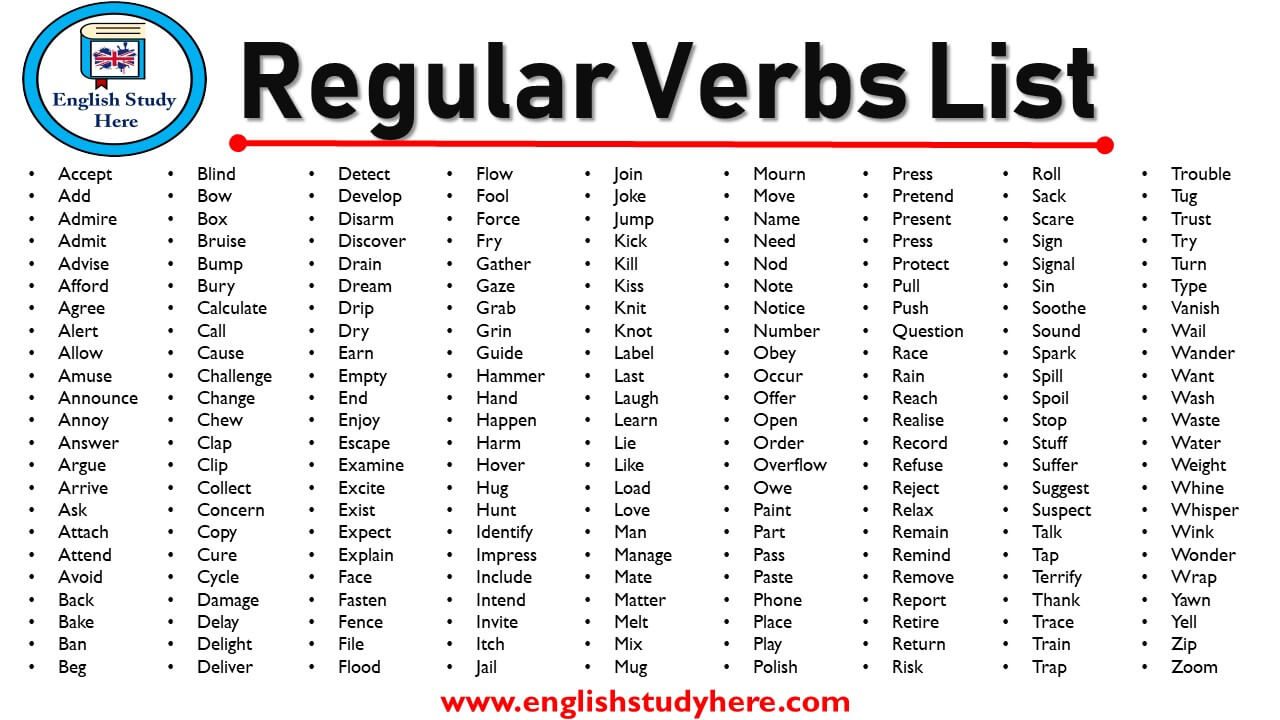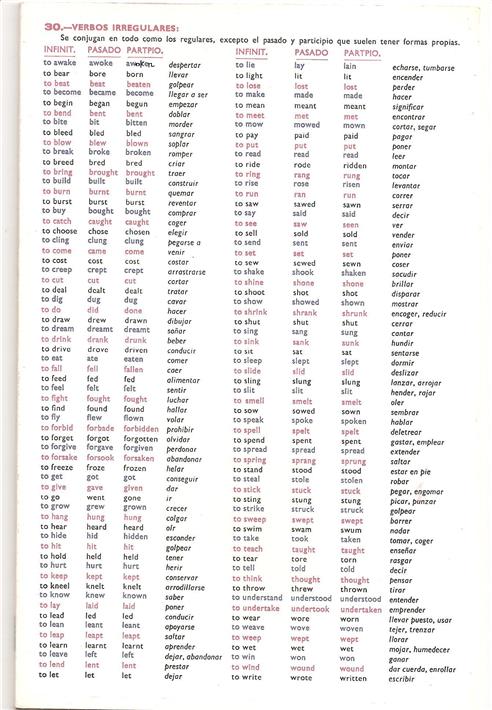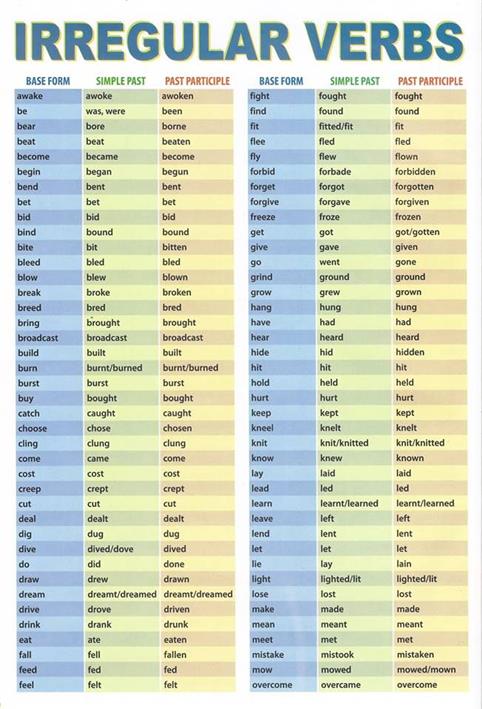


In English grammar, verbs are one of the nine parts of speech. A verb is a word or group of words that describes an action, experience or expresses a state of being. Now that we’ve taken a look at verbs, and all the possible tenses that you can write them in for you to think about, we’re going to provide you with some lists of verbs to help you vary your vocabulary a little bit. I will have been singing for an hour when you arrive.I had been singing for an hour when you arrived.So, it refers to something that was happening but has recently been completed, something that is happening now but will soon stop, and something that will happen and then be completed.

The simplest way to remember the perfect continuous tense is that it’s the previous two combined. Verbs Examples in the Perfect Continuous Tenses I will have cooked everything when you arrive.I had cooked everything when you arrived.Again notice how the verb looks different this time compared to its infinitive form, and how the surrounding words are different to accommodate the tense: The best way to remember the perfect tense, is that it is referring to something that was completed, has just been completed, or will be completed in the future. Take a look at the examples below and see how the sentences change to show what is happening and how the verb looks different from its infinitive form: The easiest way to remember continuous tense, is that it’s referring to a verb that was happening over time, is still happening now, or will be happening in the future. It will follow the same pattern in the following two sections, but continuous will be replaced with ‘perfect’ and ‘perfect continuous’ respectively. So that in this case, the top one is written in the past continuous tense, the middle in the present continuous tense, and the third in the future continuous tense. Throughout each of these next three sections, the past tense version will be written on top, the middle will be present tense, and the future tense will be at the bottom. We’ll provide a brief explanation to help you slightly.Įxamples of Verbs in the Continuous Tenses There are other tenses that aren’t simple, but we couldn’t possibly explain each one thoroughly here, but take a look at some more examples below and notice the changes that have been made for yourself. I will bake everyday – again, changing to the future means you need the word ‘will’ between the subject ‘I’ and the verb ‘bake’.This shows that ‘I’ used to bake everyday, but don’t any longer. I baked everyday – changing it to past simple tense means we say ‘baked’ not ‘bake’.I bake everyday – here the sentence works as a simple present tense sentence.We’ll show them in different tenses too so you can see how they would need to be changed slightly to make sense. Let’s look at the examples of the verbs above in a sentence so you can see how they might work. Many people when first learning about verbs simply refer to them as ‘doing words’, because they always show that something has been done, is being done, or will be done in the future (depending on the tense that you are writing in). Remember, a verb should show that something is happening, because an action is taking place in some way or another. There are many more verbs of course, but the above list shows you what a verb looks like in its infinitive form, making it slightly easier for you to identify whether or not a word in a sentence is a verb. This is where you would write it like this: When written with the particle ‘to’ the verb is in its infinitive form. In the interest of giving you some variety, we’ll take a look at what exactly a verb is, we’ll use some examples for you to see how they function as part of a sentence, and we’ll provide you with some lists of verbs by different categories so you can find some that might help you mix things up a little in your writing.Ī verb is a word that shows action, occurrence, or a state of being. There’s also a tendency amongst people to stick to certain verbs that they know, and pushing themselves to use new ones becomes a bit of a challenge.
English verb list how to#
But, not everybody would be able to provide a definition, even if they know how to use them within a sentence. It shows the actions of the sentence.Verbs, in theory, are pretty straightforward. In the sentence, “ Jennifer is running a marathon“, running is the verb.


 0 kommentar(er)
0 kommentar(er)
